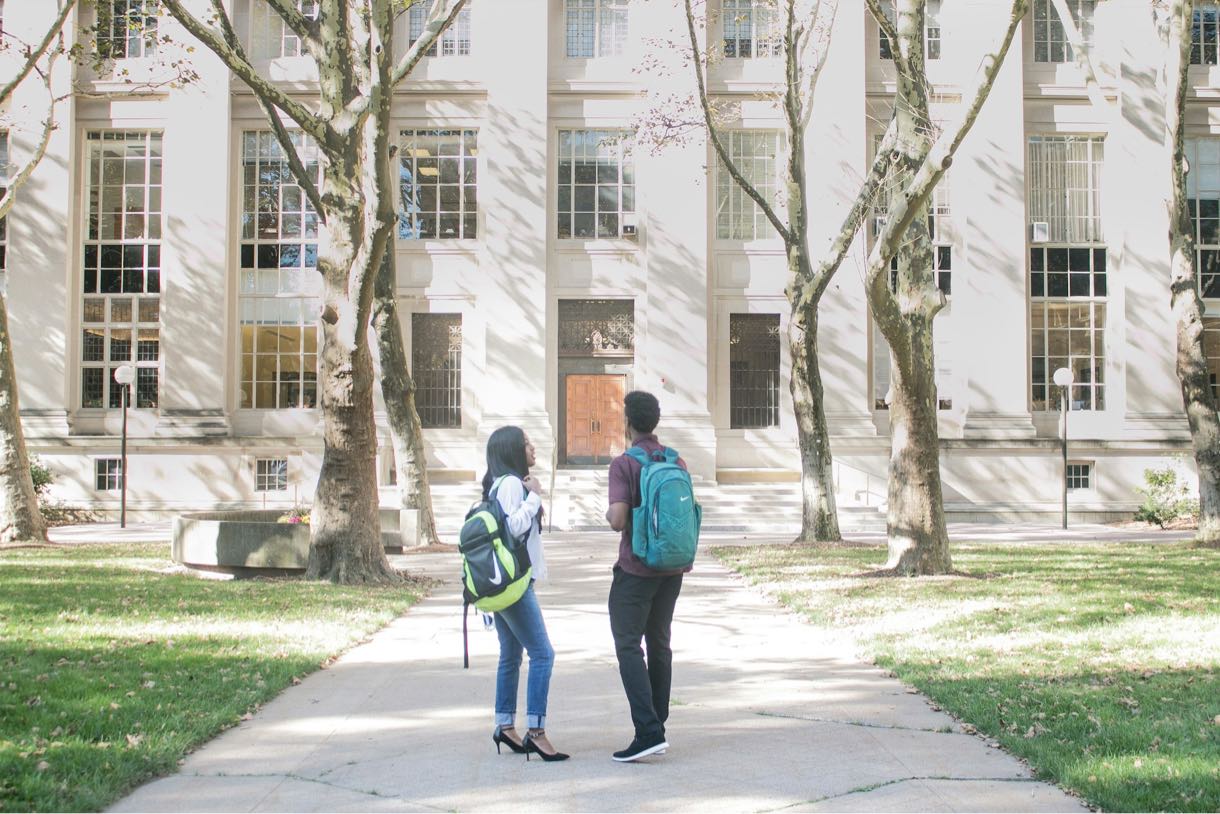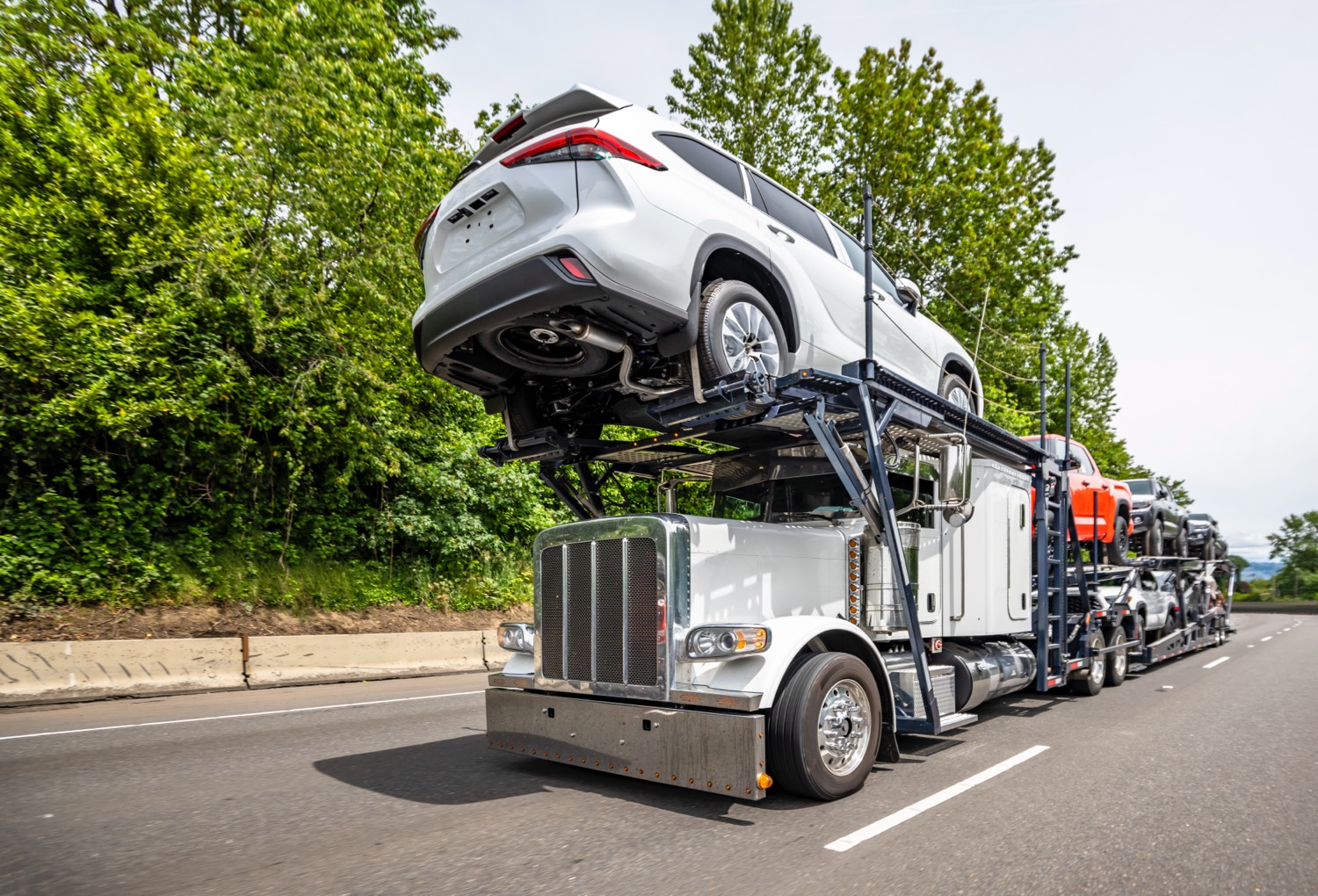Whether or not to bring a car to campus is one of the most important decisions that students must make as they prepare to start their college careers. This decision may affect their freedom of movement, independence, and access to extracurricular activities. To ensure a seamless transition into college life, we will go over important factors to consider and advice for transferring college students with their automobiles in this article. Having a personal car may have a big impact on students’ daily schedules and possibilities. It can make things like grocery shopping easier or allow for impromptu road trips with friends. Furthermore, for students who pick schools in more rural or suburban areas with limited public transportation choices, owning a car may be necessary.
Nevertheless, managing campus life while driving has its own set of difficulties and obligations. From managing parking permits to adhering to campus vehicle regulations, students must be prepared for the logistical aspects of car ownership at college. In addition, deciding whether to drive a car to school involves considering cost-effectiveness in all aspects, including maintenance and gas expenditures. In-depth discussion of these topics will be provided, enabling families and kids to make an informed choice that best meets their unique needs and circumstances.

Whether or not to bring a car is a big issue for students making the move to college. Their entire academic experience and daily life may be significantly impacted by this choice. It’s imperative to take into account a number of variables, including the potential a car may present, the accessibility of key services, and other options for mobility. In order to assist students and their families in making an educated decision, we go into further detail about these factors below.
Exploring Transportation Alternatives Many colleges and universities have strong transit networks that are geared toward meeting the demands of their students. It’s a good idea to look at the effectiveness and accessibility of the university’s bike-sharing, public transportation, and shuttle services before adding a personal car to the mix. These services may greatly lessen the need for a personal vehicle, which can ease parking issues and personal maintenance costs. They are also reasonably priced and environmentally friendly.
Proximity to Essential Services Depending on how conveniently situated basic facilities are, one may or may not need a personal vehicle. A car becomes less helpful if pharmacies, food shops, and other essential services are conveniently located near campus via bike, walking, or campus transit. The distance between the student’s residence and their school is another important factor to take into account. For individuals who don’t live too far away from their family, owning a car can be useful for getting things to and from college and for weekend trips home.
Opportunities and Convenience Even while it’s not necessary for every student, having a car may be quite helpful for those who participate in off-campus activities like internships, part-time employment, or social events that may be distant from public transportation. The ease of owning a personal vehicle must be balanced against any drawbacks, though, including parking limitations, extra expenses (such as gas, parking permits, and maintenance), and the burden of maintaining a car faraway from home.
Evaluating Campus Parking Situations It’s vital to learn about the college’s parking policies and procedures before opting to bring a car. There are often few parking spots available on campuses, which can be costly and distant from dorms for students. Knowing these things in advance will help you avoid annoyance and unforeseen expenses later on.
Considering the Environmental Impact More than ever, students nowadays are concerned about the environment. Having a car while attending college significantly increases their carbon footprint. Students should weigh the environmental effects of owning and operating a personal automobile before making a decision, particularly if there are sufficient public transportation choices.
In conclusion, bringing a car to college necessitates carefully weighing a number of considerations. Students should carefully consider how having a car on campus would fit into their daily requirements, as well as the advantages it might have for their college experience. Students may choose the option that best fits their lifestyle and academic obligations by looking at each of these subjects outlined above.

Managing logistics and making sure all the required preparations are made for a smooth transition will be essential when relocating to college with a car. This section explores the essential parts of getting ready for your student’s arrival on campus, with a particular emphasis on parking and insurance—two important components that have the potential to have a big impact on their college experience. Students can prevent frequent pitfalls and stress during their first few days of college by taking care of issues early.
Parking Solutions Due to the limited number of spots along with high demand, securing a parking spot at college may often be an unnerving task. Research the parking lots that are close to the college or student residences to start. On their websites, the majority of institutions offer comprehensive details regarding parking regulations, fees, and the application procedure. It’s imperative to comprehend these specifics well in advance of move-in day in order to guarantee a place and to budget for any parking costs, which might differ greatly amongst campuses. To improve safety, think about parking lot security as well and choose well-lit, monitored spaces.
Insurance Updates It is imperative for students who drive to college to get their auto insurance updated to reflect their new living arrangements. First, especially if it’s an out-of-state vehicle, make sure your existing coverage still covers the car at the new school location. Talk to your insurance company about any modifications to your coverage requirements and let them know where you will now regularly park your car. For students who keep up high grades or for cars that are stored securely in student housing lots, several insurance providers give student discounts. Making sure the insurance coverage is current helps shield against unforeseen expenses in the event of damage or theft.
Vehicle Registration and Compliance Before your child leaves for college, it’s also important to make sure the car is registered and compliant with local laws. Make that the vehicle satisfies all state or local safety and pollution regulations, and that its registration is up to date. This might entail renewing emission test certificates or arranging for a car inspection. Being vigilant in this regard might help busy college students avoid stressful and costly mistakes like legal troubles and penalties.
Setting Expectations Establishing explicit guidelines and expectations for automobile use at college is also advantageous. Talk to your student about the obligations that come with owning a car, including upkeep, controlling fuel and repair costs, and establishing limits on what their friends can and cannot use it for. Having clear rules in place will make sure that the car is utilized sensibly and continues to be an assistance throughout their time at college rather than a burden.
In order to ensure that students and their families are adequately prepared for this new phase of their lives, the sections that have been presented above offer a comprehensive overview of the preparations that are required for bringing a car to college.

College students who bring their cars to school need to make sure they are in excellent working order. In addition to improving safety, routine maintenance also averts unplanned breakdowns that can interfere with a student’s social and academic life. This part emphasizes the value of proactive vehicle care for students by outlining important procedures for automotive maintenance and weather-related preparedness.
Routine Check-Ups Make sure the automobile is in good working order before making the transfer. This entails a detailed maintenance schedule that includes things like testing the battery to prevent problems at startup, making sure the oil is sufficient and has recently been changed, assessing the brakes for wear and responsiveness, and checking the tires for correct tread and pressure. In order to guarantee that the car will be dependable for both short commutes and longer trips home, certain preventative steps are essential.
Preparing for Weather Conditions In their new collegiate setting, students need to be ready for the driving conditions they may encounter, particularly in regions that frequently see severe weather. This entails knowing how to operate and maintain the car in various weather conditions. For example, making sure the air conditioning system works properly in hot weather or using the proper engine coolant to avoid freezing in cold weather. Furthermore, adding essential seasonal accessories to the vehicle, such as all-weather rugs or snow tires, may greatly improve comfort and safety.
Emergency Preparedness A first aid kit, flashlight, jumper cables, and basic tools should all be included in every student’s emergency auto kit. In addition, having nonperishable food, drinks, and warm blankets on hand might come in handy in an emergency. Effective use of these tools may additionally provide comfort and useful assistance in times of need.
Fluid Checks and Replacements Maintenance requires routine examinations and refills of different car fluids. Coolant, power steering fluid, brake fluid, gearbox fluid, and windshield washer fluid are all examples of this. Maintaining optimum levels and conditions of these fluids helps the vehicle’s systems run properly and can prevent damage and costly repairs down the line.
Tire Maintenance In addition to monitoring tire pressure and tread depth, routine tire rotation and wheel alignment may increase tire longevity and enhance car safety. Uneven tire wear and tear from misaligned tires can result in poor handling and a higher chance of collisions. Maintaining good alignment and tire condition can be facilitated by routine expert checks.
Students may guarantee that their vehicles continue to be dependable and safe during their time in college by adhering to these fundamentals and keeping an attentive attitude to the maintenance of their vehicles.

For students who want to have a car while attending university, choosing how to get to the campus is an essential first step. This choice affects long-term factors including the vehicle’s health and overall costs in addition to the momentary convenience. This section explores the several ways to transfer an automobile, with a particular emphasis on self-driving vs hiring a professional transport service. It offers comprehensive information to assist families and students in making the right choice.
Self-Drive Versus Professional Transport Depending on a number of variables, such as cost, convenience, and distance, one may decide to use a professional transport service instead of driving the car yourself to campus. For shorter distances, self-driving might be practical and cost-effective. It permits both the freedom to pack light and the ability to transport personal items in the automobile. The car’s wear and tear, the possibility of unplanned repairs, and the physical strain of driving for extended periods of time are the main drawbacks during longer journeys.
Benefits of Professional Auto Transport Services Expert vehicle transportation services provide an effortless method to deliver your vehicle to college or university. These services are especially helpful for long-distance vehicle relocations, as the expenses and hazards of lengthy car trips can be overwhelming. In order to make sure that any damage sustained while transit is compensated, transport companies normally offer insurance coverage throughout the relocation. For many families, this peace of mind is an essential advantage.
Evaluating Costs and Logistics When deciding how to ship a car, it’s key to weigh the overall expenses of each choice. In addition to fuel expenses, driving the automobile oneself may also need overnight accommodations, meals, and tolls. Professional services, on the other hand, save a lot of personal time and minimize the possibility of vehicle wear and tear, even if they could have greater upfront expenditures. It’s important to evaluate the logistics, including the locations of pickup and delivery, the duration of the trip, and the dependability of the service provider.
Safety Considerations The most important consideration while driving a car to college is safety. If you must drive, be sure the route you choose is well-traveled and safe, and be ready for any pauses or breaks you may need to take to prevent driver fatigue. Professional movers typically use knowledgeable drivers and well-kept vehicles, which may provide an extra degree of security, particularly when traveling through strange or difficult terrain.
Making the Final Decision A trade-off between cost, convenience, and safety generally determines whether to drive or use a professional car shipping service. To compare the predicted expenses of self-driving with the quotations from various transport providers, it is important to obtain estimates. Think about the psychological and physical effects of a lengthy journey in addition to the ease and security of using a professional transportation service.
By providing a thorough guidance, this section on transferring the automobile to campus is intended to assist students and their families in understanding the many possibilities available to them and in making decisions that are tailored to meet their specific requirements and circumstances.

Having a car while attending college may have a significant influence on a student’s lifestyle, combining convenience with a number of issues that need to be carefully considered. In order to assist students and their families in navigating the intricacies of determining whether a car is advantageous during their college years, this guide has dug into important recommendations and considerations. The decision to drive a car on campus requires careful consideration of a number of variables that may have an impact on a student’s everyday life and academic experience, from comprehending the campus transportation systems to determining if independent transportation is necessary.
Furthermore, taking care of a car while in college involves more than simply keeping it there; it also entails incorporating it into daily activities in a way that benefits the student’s academic trajectory. Students may concentrate more on their academics and less on administrative concerns by making advance plans for parking, insurance, and upkeep. Students may guarantee that their automobile is a valued asset rather than a burden by making an informed decision, opening the door to a more rewarding and fuller college experience.

College students and their families have many logistical difficulties while moving to a new campus, particularly when transferring cars across state lines or even the entire nation. Choosing Ship A Car, Inc. offers a dependable, stress-free option designed especially with college students’ requirements in mind. Ship A Car, Inc. can handle any size vehicle, big or little, and makes sure it gets to its new college residence quickly and safely. Their staff of knowledgeable and seasoned transport coordinators uses their vast networks and expertise to negotiate the best shipping prices, ensuring excellent service at a reasonable cost.
Additionally, Ship A Car, Inc. is a top option for college students and their parents because of their commitment to providing excellent customer service. The procedure is simple: utilize their online vehicle transport calculator for a quick quote, or call (866) 821-4555 to speak with a knowledgeable transport consultant who will walk you through every step of the process. Students are able to concentrate more on their academics and less on the hassles of relocating because to this flexibility. Selecting Ship A Car, Inc. is selecting peace of mind, knowing that from pickup to delivery, your car is in experienced hands.
Get in touch with Ship A Car, Inc. at (866) 821-4555 now for a simple, dependable auto shipping solution, or use the online auto transport calculator to get started. Use their reliable car shipping services to ensure a seamless move to university.
Q1: How do I decide if my student needs a car at college?
A1: Take into account the possibilities for off-campus activities, the accessibility of necessary resources, and the availability of campus transportation services. It might not be required if these needs can be satisfied without a car. Determine how frequently your student may need to leave campus for social events, employment, or internships that don’t allow for public transportation. This comprehensive approach will assist in determining whether a car is necessary for their time in college.
Q2: What are the advantages of using a car transport service like Ship A Car, Inc.?
A2: When traveling long distances or in inclement weather, using a transport service like Ship A Car, Inc. offers several advantages, including safety, convenience, and peace of mind. This option is especially helpful for students who are moving to locations with difficult driving conditions or across states. When you take into account the possible expenses of taking lengthy road journeys, it may frequently be more affordable and lessen wear and tear on the car.
Q3: What should be prioritized when updating car insurance for college students?
A3: Make sure the coverage is suitable for the new location and take into account any reductions for low use or high grades. Additionally, see whether any student-specific advantages are offered by the policy or if any adjustments are necessary due to state legislation in the college’s location. It is important to get comprehensive coverage since it offers additional security for the car on campus by covering damage and theft.
Q4: Are there specific car features that are particularly beneficial for college students?
A4: Yes, a college student’s experience with their automobile can be improved by a few amenities. It is essential to have dependable safety systems like lane departure alerts and automated emergency braking. Considering the probable financial limitations, fuel economy is an additional important consideration. Because they are simpler to park in confined locations on campuses, compact automobiles can also be helpful.
Q5: How can students prepare their car for a move to a college in a different climate?
A5: A automobile has to be prepared for a new environment in many processes. Make sure the car has winter tires and antifreeze if you’re heading to a colder climate. In hotter regions, make sure the air conditioner is working properly and think about window tinting to prevent UV ray damage to the interior. To keep the automobile in its best condition and respond to changes in the environment, regular maintenance inspections are essential.
With the purpose of addressing the numerous concerns that college students and their families have while contemplating the possibility of bringing a car to campus, this expanded part of the frequently asked questions (FAQ) section seeks to provide a complete resource that combines practical guidance with safety suggestions.




